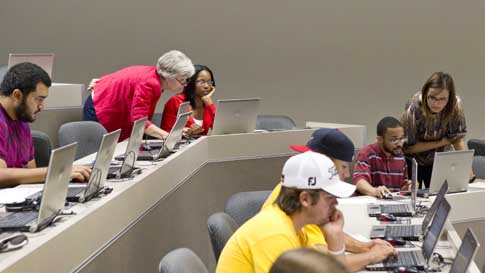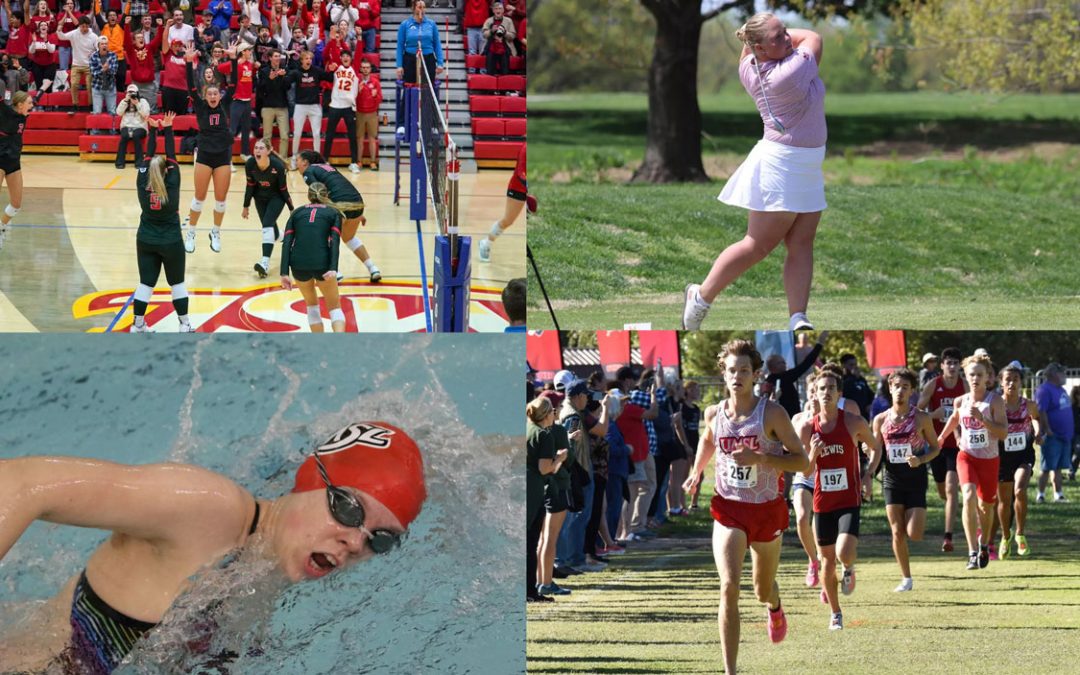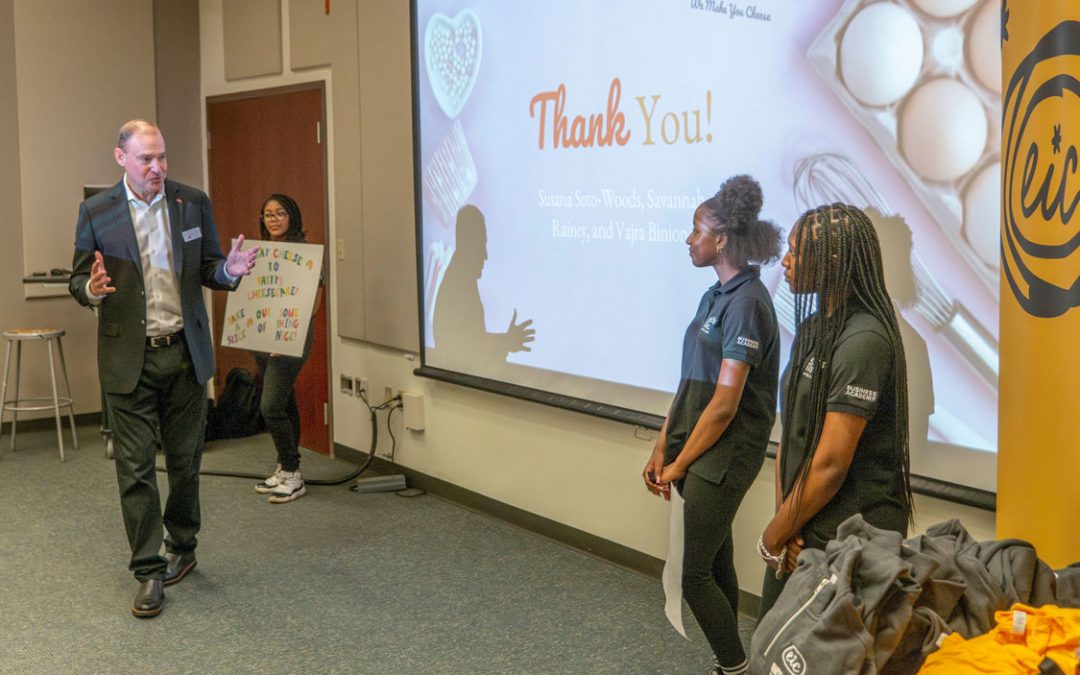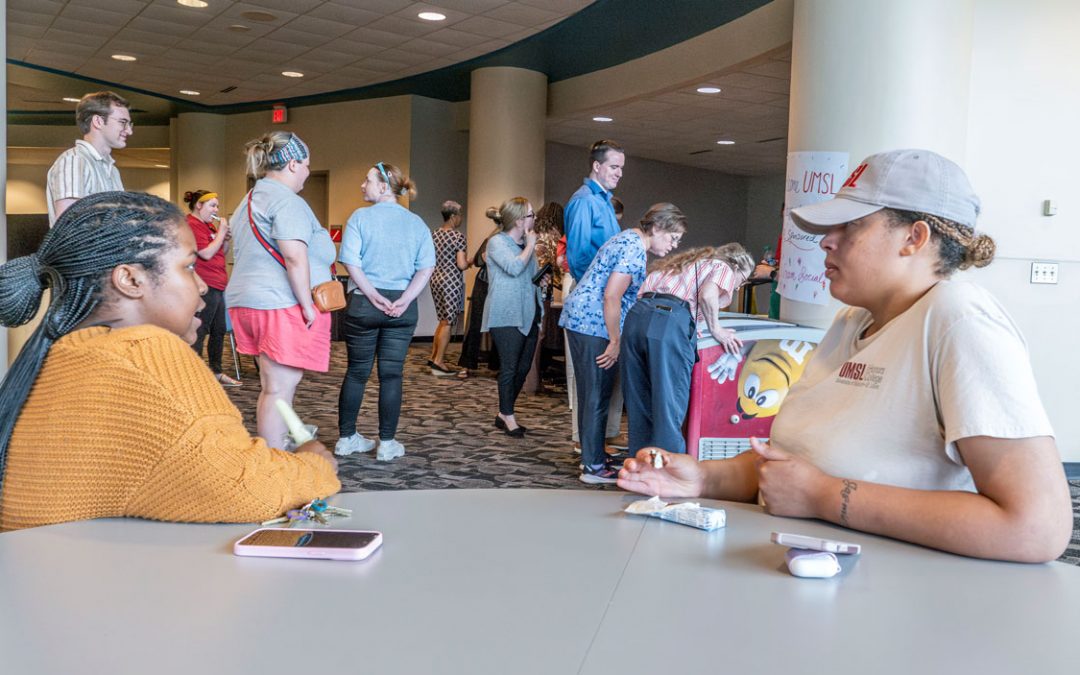
Mimi Duncan (standing, upper left), lecturer in management information systems at UMSL, maintains face-to-face contact with her students thanks to a hybrid course she created with Kathleen Burns, director of UMSL’s Advanced Credit Program. The two were recognized recently for development of the course. (Photo by August Jennewein)
Mimi Duncan admits to being a bit reticent when she first began to create an online information systems course.
“I’m very set in my ways, and I hadn’t learned the applications or teaching techniques necessary for online learning,” said Duncan, a lecturer in information systems at the University of Missouri–St. Louis.
Four years ago, Duncan and Kathleen Burns, director of UMSL’s Advanced Credit Program, who also teaches instructors h0w to use online technology classes, were awarded a grant from UMSL’s Center for Teaching and Learning to create an online section of IS 1800 that enrolled more than 600 students each year.
That redesigned information systems course in the College of Business Administration was recently recognized twice in one week.
UMSL was one of three universities singled out as “Innovative Learning Models” at the annual national Educause Conference on Oct. 16 where Burns was a panelist.
The hybrid course and Duncan also garnered attention from the Mid-America Business Deans Association annual meeting when Duncan and the Department of Information Systems each received $500 for the Innovation in Business Education award.
Duncan and Burns recalled the process as a long one. After the initial semester of teaching the course totally online, Duncan still had reservations.
“I missed the face-to-face interaction with my students,” she said.
At about the same time, Duncan was introduced to the Missouri Course Redesign Initiatives. Based on a national model, the initiative was developed to improve learning outcomes as well as reduce instructional costs by redesigning large-enrollment, multi-section courses using technology-supported active learning strategies.
The two women worked together and after several semesters created a hybrid course for IS 1800 that fit Missouri’s redesign initiatives. The final hybrid course uses the best of face-to-face and online learning.
Duncan and Burns explained that UMSL’s hybrid IS classroom requires students to actively seek information and determine its worth, with the instructor and graduate students serving as facilitators. Blackboard education software is used extensively for everything from assessments to updates, with all lessons developed by the instructor. Students also are given access to a custom portal developed by Pearson Software.
Duncan meets with her students eight times each semester and holds a drop-in lab once a week from 2 to 5 p.m.
Duncan said analysis showed average scores on final exams went from 73 to 79 percent. Students in the redesigned course also performed significantly better as a group in subsequent information systems classes than those who did not take that class. Additionally, the university’s costs dropped significantly because of decreased classroom hours.
Duncan and Burns, along with Don Sweeney, teaching professor of logistics and management, and doctoral students Jeremy North and Will Ellegood have written a paper about the results of the redesigned course. It will be published in the Journal of Online Learning and Teaching.
Both Duncan and Burns believe that instructors need to be personally involved in the creating of assignments, lectures and all other aspects of course construction. It is imperative to student success and retention that students see a “real” person as their instructor.
“Our students have chosen UMSL for a reason and we need to make sure that as we develop more hybrid or online courses, students still see us as UMSL,” said Duncan.














